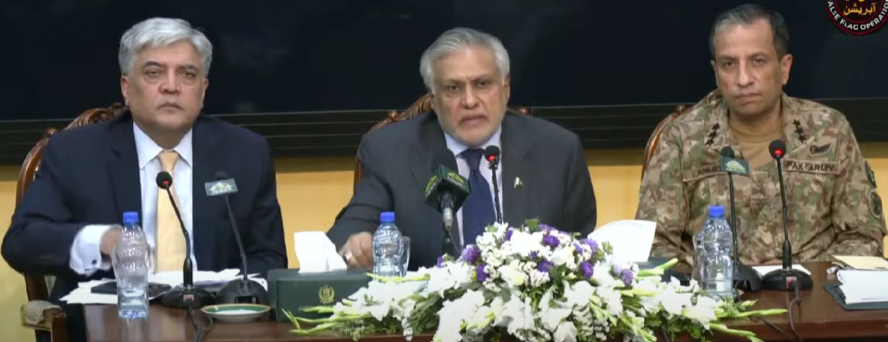By Staff Reporter
ISLAMABAD: Pakistan accused India on Thursday of launching a brazen series of drone attacks, including a bizarre assault on its own territory in Amritsar, escalating tensions between the nuclear-armed neighbors to a dangerous new high.
Pakistani forces shot down 29 Israeli-made Harop drones at multiple locations across the country, alleging the attacks killed civilians and targeted sacred sites. The latest hostilities erupted overnight between May 7 and 8, when military reported that India had sent Harop drones into its airspace, targeting cities including Lahore, Gujrawalla, Chakwal, Rawalpindi, Attock, Bahawalpur, and areas near Karachi.
One drone managed to strike a military target near Lahore, injuring four army officers, while another crash killed a civilian in southern Sindh province.
The drone campaign follows India’s missile strikes on May 6 and 7, which killed 31 people and injured 57 across various Pakistani cities. New Delhi described those strikes as a necessary response to an April 22 attack in the disputed Kashmir region that left 26 tourists dead, an incident it blamed on Pakistan despite Islamabad’s repeated denials.
In a fiery press conference in Islamabad, Foreign Minister Ishaq Dar revealed that multiple Indian drones had violated Pakistan’s airspace, including one aimed at a military installation in Lahore. “Just 36 hours ago, Pakistan faced a major confrontation, and by the grace of Allah, emerged successful,” Dar said. “We assure the nation that we will not let them down in the future either.”
The foreign minister accused India of a “malicious” scheme to falsely implicate Pakistan in attacks on Indian civilians and incite anti-Pakistan sentiments among Punjab’s Sikh population to “conveniently externalize the rising communal tensions within India.”
“Unlike the policies of the Indian leadership, Pakistan remains firmly committed to safeguarding innocent lives and regional harmony,” he said. “We deeply empathize with the civilian population of India, particularly the Sikh community of Indian Punjab, as their lives were endangered by India through the malicious use of projectiles, most probably missiles, to achieve sinister political ends.”
Dar, alongside Director General of Inter-Services Public Relations (DG ISPR) Lt. Gen. Ahmed Sharif Chaudhry, alleged that India launched a “highly provocative and dangerously escalatory attack” on its own territory in Amritsar in the early hours of May 8, calling it “a deeply insidious and sinister attack.”
He said three projectiles were deliberately dropped in the capital of Indian Punjab, while a fourth entered Pakistani airspace and was neutralized by air defenses. “Pakistan categorically denies any intention or action that would endanger the civilian population in Indian Punjab,” Dar emphasized.
Lt. Gen. Chaudhry, addressing the press conference, dismissed India’s claims of Pakistan’s striking 15 sites inside India as “baseless and fictional.”
“Such drama belongs to the theatre, not the battlefield,” he said. “Has the Indian army and government been living in the 18th century? When will they step out of the theatre and cinema and return to reality?”
Categorically rejecting visuals shared by India as proof, he quipped, “At least they could have set fire to the dry fields they are showing. These are just barren patches — nothing more.”
India media The Wire, quoting officials, reported “loud explosions” and “red-hot projectiles flying in the sky” in Jammu, while The Hindustan Times claimed India intercepted eight Pakistani missiles in areas like Satwari and Samba.
Chaudhry described India’s accusations as a “phantom defence that they have mounted,” drawing parallels to the 2016 Uri attack when India claimed unverified strikes. “The fascination that you have with phantom strikes, which we saw in 2016 when Uri was attacked,” he said.
“After that, there was a phantom strike. On ground, nothing happened, but a strike was claimed. The story that you are listening to today, we can very conveniently call it a phantom defence that they have mounted,” military spokesman said. “That was a phantom strike, now they are reversing it that we have defended so well.”
Chaudhry stressed that Pakistan’s armed forces remain “alert and capable,” vowing that “any misadventure by India will be met with a forceful response.”
“When Pakistan strikes, there would be no need for either side to announce it, as the entire world would come to know,” Chaudhry said. “When Pakistan responds, it will be decisive — and the world will not have to rely on Indian media to know what happened.”
The DG ISPR said an Indian drone targeted Nankana Sahib, a revered Sikh holy site, calling the act “abhorrent and unacceptable.” “We saw it today, they directed one drone to Nankana Sahib, which we took out.”
Chaudhry confirmed that Pakistan neutralized 29 Indian drones, with only one partially engaging its target, causing equipment damage and injuring four soldiers. “However, since the enemy doesn’t distinguish between military or civilians […] three people were martyred while four were injured.”
Showing video footage of a tracked projectile, he said, “When something is sent towards Pakistan, it is monitored and it has a digital signature. You cannot cook up any story you want.”
He noted that Pakistan closely monitored the projectile’s “trajectory, its height,” adding, “Anything that comes from the east, we have an eye on it. Anything that is moving or anything that is coming, it is being monitored and being taken out.” Of the debris, he said, “It appears to be a missile, the forensics are being done to ascertain that.”
The spiraling crisis prompted a Thursday call between Pakistani Prime Minister Shehbaz Sharif and U.S. Secretary of State Marco Rubio, according to a press release from Sharif’s office.
Sharif reaffirmed Pakistan’s resolve to defend its sovereignty and territorial integrity, invoking its right to self-defense under Article 51 of the U.N. Charter. “India’s attacks had violated Pakistan’s sovereignty and territorial integrity, while gravely kindising peace and stability in the South Asia region,” he was quoted as saying.
Rubio, according to the statement, said the United States was “closely following the situation in the region as it was committed to promoting peace and stability.” He emphasized the need for Pakistan and India to work together to de-escalate tensions.
Copyright © 2021 Independent Pakistan | All rights reserved




